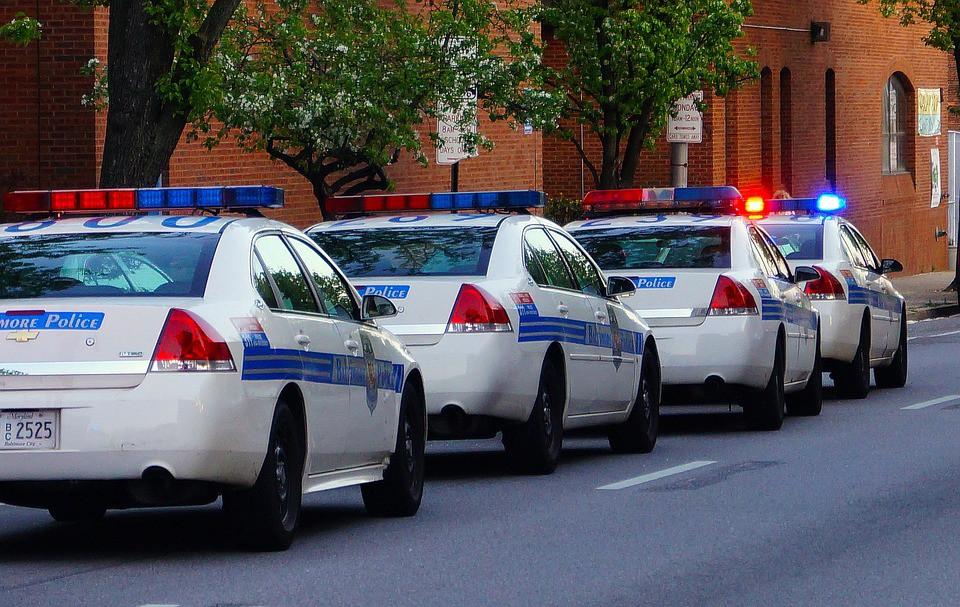Baltimore lawmakers are eyeing potentially disastrous mandatory minimum sentences
In response to an increase in violent crime, lawmakers, law enforcement, and various community members in Baltimore, Maryland are considering a plan that has proven ineffective at reducing crime for decades: mandatory minimum sentencing. Under a proposal announced last Friday, people caught in possession of an illegal firearm within 100 yards of a public space— including […]

In response to an increase in violent crime, lawmakers, law enforcement, and various community members in Baltimore, Maryland are considering a plan that has proven ineffective at reducing crime for decades: mandatory minimum sentencing. Under a proposal announced last Friday, people caught in possession of an illegal firearm within 100 yards of a public space— including houses of worship, parks, and schools— would be imprisoned for no less than one year. Parole opportunities would automatically be off the table for offenders, as would sentence suspensions.
The murder rate in the city reached a record high early this year, and police Commissioner Kevin Davis attributes this to people in the streets carrying illegal firearms with the intent to kill. But there is no evidence that mandatory minimums have a meaningful impact.
Going as far back as the 1970s, states that have implemented such penalties have been unable to substantiate that punishment reduces violent crime. New York City is one of the only large U.S. cities with its own mandatory minimum sentencing law for illegal gun possession, but the city’s drastic decline in gun-related homicides beginning in 1990 occurred long before the penalty was implemented.
What mandatory minimums have done, instead of their intended effect, is ravage communities of color. Theoretically, these sentences are race-neutral, because imposing a uniform standard presumably eliminates room for bias during sentencing. And yet black and Latino defendants are hit with charges warranting mandatory minimum sentencing far more often than their white counterparts, who are charged differently or more likely to be diverted to rehabilitative programs.
Greg Newburn, director of state policy for Families Against Mandatory Minimums, a nonpartisan organization that advocates smart sentencing policy, says some studies have shown that gun crimes have dropped slightly when mandatory minimum sentencing goes into effect. But other types of crime will increase. When looking at the big picture of gun violence across the country, there is no one-size fits all solution to the problem.
“Each individual city has its own culture, its own people, history, structure, the relationships between the police and a community,” Newburn told the Fair Punishment Project. “We don’t know why crime has gone up in a lot of these cities, and why it’s gone down in others. To say in the abstract that [mandatory minimums are] the better solution is a fool’s errand.”
Even city council members know what impact Baltimore’s new proposal will have: additional imprisonment for black people in a city with rampant racial profiling by police.
“We know mandatory minimums have been specifically shown to overwhelmingly impact poor black people, and in Baltimore we know that we have an unfortunate abundance of poor black people, particularly poor black men who have already been impacted by mandatory minimums,” said Councilman and Public Safety Committee chairperson Brandon Scott. “We have to figure out how to make sure that those violent repeat offenders who feel comfortable carrying guns are being punished, but at the same time we cannot have things that are going to make things worse when you’re talking about the grand scheme of young poor black people in our city.”
But according to Baltimore criminal defense attorney Jason Downs, “legislators are voting to take an easy way out,” relying on incarceration instead of zooming in on the underlying cause of illegal gun ownership. “Creating different punishments doesn’t solve crime,” he said. That notion is backed by Baltimore public defender Todd Oppenheim, who recently pennedan op-ed slamming the proposal in the Baltimore Sun.
City leaders are already taking new precautions to tackle gun violence. In May, at the request of Mayor Catherine Pugh, federal authorities agreed to donate resources and manpower to the fight. Last September, State’s Attorney Marilyn Mosby created a special team of prosecutors and detectives to focus solely on prosecuting gun crimes to ensure cases don’t fall through the cracks and build more robust cases against offenders. All of these efforts signal that cracking down on repeat gun offenders is a priority.
Adding mandatory minimums to the mix isn’t the answer.
“We should be focused on solving the problem of how do these guns get into the street in the first place,” said Downs. “How are they getting into our city and who is flooding the city with [them]? That’s how you nip a problem in the bud.”
UPDATE: As a crowd of activists protested the bill inside and outside the Baltimore City Council building on Tuesday, a committee unanimously agreed to limit the scope of the legislation. Under the latest version, a mandatory minimum sentence would only be imposed if a defendant was convicted of being in possession of a gun “in connection” with another crime, or was determined to be a second-time offender. Despite the fact that her office created a special team of prosecutors and detectives to focus solely on prosecuting gun crimes, State’s Attorney Marilyn Mosby was absent from the committee hearing and did not provide written testimony on the subject.
